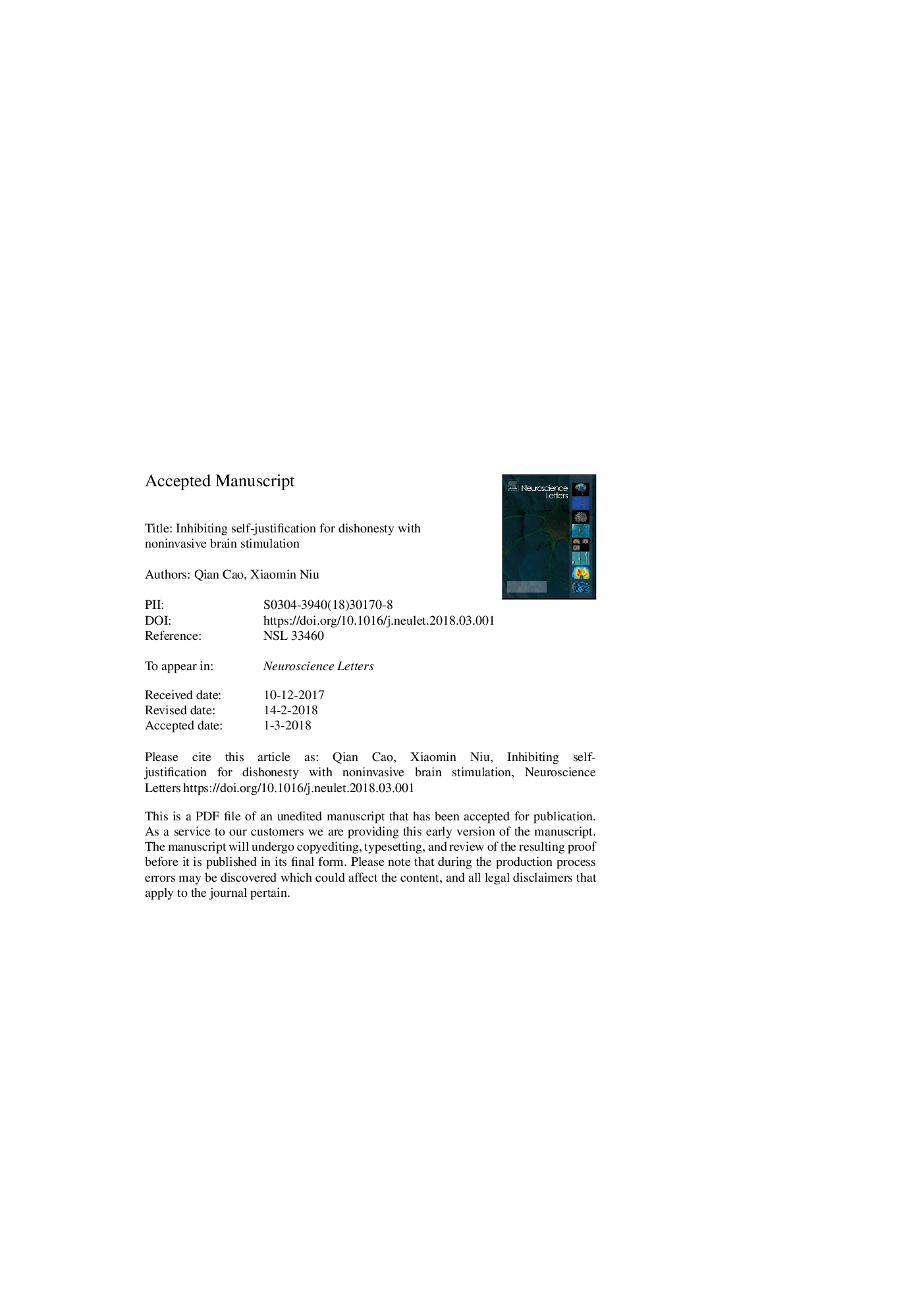| Article ID | Journal | Published Year | Pages | File Type |
|---|---|---|---|---|
| 8841595 | Neuroscience Letters | 2018 | 16 Pages |
Abstract
People derive value from self-justifications by allowing themselves to lie for self-interest while feeling honest. This study explores, with the use of transcranial direct current stimulation (tDCS), whether ventrolateral prefrontal cortex (VLPFC) could modulate genuine (dis)honesty by inhibiting self-justification for dishonesty. A total of 149 participants complete a die-in-a-cup task, in which they were asked to roll a six-sided die placed in an opaque cup twice but to report the first roll only. The experimental results show that anodal tDCS over right VLPFC increased 35.04% full honesty and decreased 21% high claims, resulting in the cumulative distributions of reported die rolls in the anodal group deviate from justified dishonesty benchmark and cluster around full honesty benchmark. These results add to the growing literature on neuronal mechanisms of genuine (dis)honesty by demonstrating that increasing honesty after anodal tDCS over right VLPFC is based on the mechanism of inhibiting self-justification for dishonesty.
Related Topics
Life Sciences
Neuroscience
Neuroscience (General)
Authors
Qian Cao, Xiaomin Niu,
